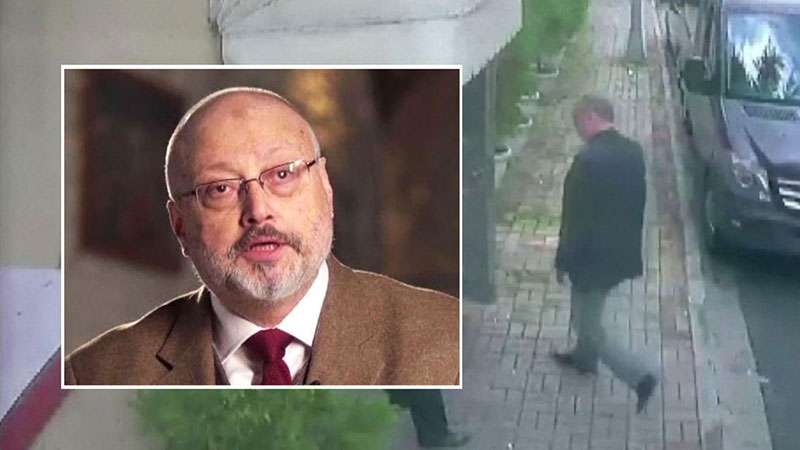
Anowara Rayhan Arusha
Undergraduate student, Department of English, University of Dhaka
Email: milarusha7095@gmail.com
Jamal Khashoggi- a name that will make your soul tremble with the pain of injustice, a name that will remind you of the innocent men killed brutally and heinously by the White-Walkers in Game of Thrones, a name that the world will not forget in decades. But what did he do exactly to get chopped into pieces with no mark of mercy or even clemency? The degree of this heinous act cannot be possibly measured in any scale. This is perhaps beyond the understanding of human reason and stands as world’s one of the most merciless acts of all time.
Khashoggi—a Saudi writer, United States resident and Washington Post columnist—had entered the Saudi consulate in Istanbul on October 2 to collect the documents of his divorce with ex-wife so that he could remarry but never returned. “Khashoggi was killed inside the building on the orders of a rogue intelligence officer”, said Saudi Arabia’s public prosecutor. However, the Turkish officials say they have evidence, including gruesome audio recordings, that the journalist was killed by a team of Saudi agents led by the highest levels. His body has not yet been found. Debates continue over who killed him, with what purpose in mind but the never-ending argument bring no fruit to the world.
Khashoggi engaged everyone interested in Saudi Arabia and in the Arab region and his reasoning and analytical skills were as opposed to polemical, which is why he was a likable personality in the Washington policy circle. Khashoggi fled from Saudi Arabia in 2017 and went into self-imposed exile. He was also banned from Twitter by the Saudi Arabian Government, and later he wrote newspaper articles critical of the Saudi government. Khashoggi had been sharply critical of Saudi Arabia’s crown prince, Mohammad bin Salman, and the country’s king Salman of Saudi Arabia as well by opposing the Saudi Arabia-led intervention in Yemen. This could suggest a motive behind the killing.
The murder not only reflects Saudi Arabia’s increased aggressiveness under its brash young crown prince but also created tension and stirred geopolitical conflicts and complications. Moreover, the brazenness of a targeted killing by Saudi on Turkish soil violates the international law. If not addressed immediately, it will start to engross the entire world like a plague in no time.
“Give me the liberty to know, to utter, and to argue freely according to conscience, above all liberties.” John Milton’s Areopagitica advocated freedom of expression—a basic and unalterable liberty for the general and the media, one which should be prioritized over all. Following this tradition for years, journalists all over the world joined together to speak and support the truth as well as maintain transparency among the media and press. However, opinions which might be offensive, hateful, ignorant, racist or even purely non-factual could have space in order to spark debates or arguments. Freedom of speech might not always reveal and reflect the truth, nevertheless, it is essential to have opinions of all sorts to ensure a balanced platform for dialogue necessary to build opinion and discourse.
According to World Press Freedom Index 2018, an annual review of 180 countries and their relationship with the media, top-scored countries—Norway, Sweden, Netherlands, Finland, Switzerland, Belgium, New Zealand, Denmark—hold the score ranging from 7.6-13.9. The same study shows that the lowest-ranking countries with the least freedom of speech consist of Saudi Arabia, Sudan, Vietnam, China, North Korea and so on.
The state of freedom of speech looks traumatized over the globe. In 2018, dozens of journalists were killed worldwide magnifying the devastation of press freedom. The growing climate of violence and intimidation directed against the media recently prompted the Committee to Protect Journalists (CPJ) to describe “a profound global crisis of press freedom.”
Given the scenario that the state has become the villain to freedom of speech instead of being the custodian, no law or act can change the situation until and unless the system is changed. Change in the system requires mass awareness translated into collective action. Therefore, people have to step up and collective actions be put into motion to restore and uphold the freedom of speech.


